| Inspection and Quarantine |
WORK OF THE INSPECTION AND QUARANTINE BRANCH
|
PREVENTION OF AVIAN INFLUENZA
To safeguard the population against Avian Influenza (AI), the Department continued its year-round programme to monitor and screen for the presence of the virus at various sites considered to be at risk, including poultry farms, the wholesale poultry market, pet bird shops, recreational parks and nature reserves. Dead birds were collected and tested on a daily basis. ťIn total, 5,698 bird carcasses and 39,596 swab samples were collected for testing in 2015-16.
Unauthorised keeping of backyard poultry (chickens, ducks, geese, pigeons and quails) is an offence with a maximum fine of $100,000. Departmental staff continued to patrol villages in rural areas to disseminate messages about AI prevention by putting up posters onto village information boards and distributing leaflets to villagers. Based on complaints received and irregularities spotted during routine patrol, blitz operations were conducted.
All imported pet birds entering Hong Kong have to be tested for AI before being released to their importers.
LIVESTOCK FARM INSPECTIONS
To protect the general population from AI, the Department has imposed stringent biosecurity requirements on local poultry farms in addition to the obligatory AI vaccination programme. Every batch of local farm chickens must pass the AI test before they are allowed to be sold in markets for consumption.
The Department carries out regular inspection to local pig farms and provides professional advice to farmers in terms of farm management, biosecurity, disease prevention and proper usage of veterinary drugs.
During the year, the departmental staff conducted 2,481 inspections on livestock farms and quarantined 2,373 pigs imported for breeding purposes.
VETERINARY LABORATORY
Tai Lung Veterinary Laboratory provides veterinary diagnostic support services including testing of animal pathogens and chemical residues in pre-slaughter food animals. In 2015-16, over 9,700 requests were received for animal, bird and fish disease investigation.Å¥Also, over 228,000 and 106,000 tests for AI and chemical residues were conducted respectively.
ANIMAL AND PLANT QUARANTINE CONTROL
As the animal import and export control authority in Hong Kong, the Department is responsible for ensuring that all cross-border animal movements are closely monitored to prevent the introduction of animal diseases into Hong Kong.
Special permits issued by the Department are required for the import of live animals and birds in accordance with the Public Health (Animals and Birds) Ordinance (Cap 139) and the Rabies Ordinance (Cap 421). Importing animals and birds without a special permit is liable to prosecution. In 2015-16, a total of 8,068 permits were issued for the import/transit of live animals and birds.
To strengthen the efforts to prevent illegal importation of animals and to safeguard public health, the Quarantine Detector Dog (QDD) Programme commenced operation in February 2008 and QDDs are now deployed at various boundary control points.
Statistics on plant import control and phytosanitary certification services are at Appendix 9.
|
CONTROL ON PESTICIDES
In view of the public concern over the safety of pesticides, the Department reviewed the registration of pesticides that were classified by the World Health Organization as extremely hazardous or highly hazardous (beta-Cyfluthrin, Cyfluthrin, Dichlorvos, Heptenophos, Nicotine, Triazophos and Vamidothion) and consulted the trade on the addition of pesticide registration condition to restrict the maximum concentration and formulation allowed for import.Å¥ The regulation would be effective in mid-2016.
To promote safe and proper use of pesticides, the Department participated in the Hong Kong Polytechnic University Safety Week, the Flower, Bird, Insect and Fish Show, the FarmFest, the New Territories East Region Scout Band Carnivals. Moreover, the Department also organised roving exhibitions at lobbies of government offices and produced a poster "Safe Use of Household Pesticides" to remind the public of safety precautions in handling household pesticides.
Statistics on pesticide control are at Appendix 10. |
PLANT VARIETIES PROTECTION
The Plant Varieties Protection Ordinance (Cap 490) provides plant breeders (or the owners of the variety) with legal means to apply for proprietary rights over cultivated plant varieties they bred and developed. Grantees are given the exclusive rights to import, export, produce for sale, offer for sale or sell reproductive materials of the protected variety for a term of 20 or 25 years.
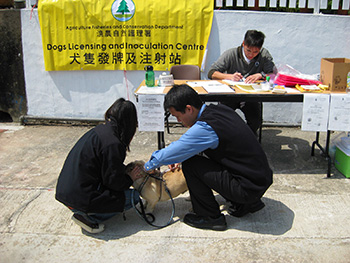 ANIMAL MANAGEMENT The Department adopts various animal management measures to control animal diseases, regulate animal trading and promote animal welfare.
Rabies is controlled effectively in Hong Kong, without any case found since the 1980s. In 2015-16, some 62,800 new or renewed dog licences were issued after the dogs were vaccinated against rabies. During the year, about 2,300 dogs and 1,200 cats were caught, received or handled. About 870 animals, healthy and with good temperament, were re-homed through 15 partner animal welfare organisations.
The Department organises roving exhibitions regularly in villages in the New Territories and on outlying islands to remind dog keepers that their dogs must be vaccinated against rabies, microchipped, and licensed once attaining the age of five months or above and re-vaccinated against rabies every three years to renew the licence. ťNeutering of pets and responsible pet ownership are also promoted. Among the 12 roving exhibitions organised during the year, inoculation teams were deployed thrice to the villages on outlying islands to vaccinate villagers' dogs, renew their dog licences and give advice on proper control of dogs.
|
|
Since 2011, the Department has been collaborating with animal welfare organisations to implement a "Capture-Sterilise-Relocate" programme for stray cattle in Sai Kung and Lantau Island with a view to controlling their population in the long run. This helps minimise the nuisance and danger potentially caused by stray cattle to the public while at the same time safeguard their welfare. Up to the end of 2015, a total of 315 cattle/buffalo were neutered and 412 heads were relocated.
The three-year Stray Dog "Trap-Neuter-Return" Trial Programme commenced at the beginning of 2015. The Society for the Prevention of Cruelty to Animals (SPCA) and Society for Abandoned Animals are the programme coordinators for the Cheung Chau Trial Zone and the Tai Tong Trial Zone respectively.Å¥They are responsible for carrying out the programme according to the operating procedures set with the Department. The Department closely monitors the progress and has commissioned an independent consultant to conduct regular reviews on the effectiveness of the programme during the trial period. Statistics on animal control and management, and the relevant permits/licences issued are at Appendix 11.
|
ANIMAL WELFARE
During the year, the Department organised a wide range of public education and publicity activities to promote animal welfare. They included "Pets With Love" Drawing/Painting Competition, a large-scale two-day dog adoption carnival, an animal adoption day, two dog training courses, 101 seminars at schools and estates and 33 roving exhibitions. Besides, the Department joined SPCA to organise the "Hong Kong Originals" publicity campaign for the promotion of adoption of mongrels.
The Department produced another 10-episode TV programme "Full of Love" featuring tips for caring of pets for broadcast on buses to promote rehoming of pets and Responsible Pet Ownership. The videos of last year's TV programme "Love Forever" had been added to the YouTube Channel "AFCD Animal Management".
|
Copies of an educational DVD in six languages were provided to 43 domestic helper agencies to help disseminate the dos and don'ts for handling dogs in public places to domestic helpers. Leaflets and posters were distributed to the construction industry to help disseminate the code of practice for keeping dogs on construction sites. The Department collaborates with partnering Animal Welfare Organisations (AWOs) in promoting animal welfare and rehoming animals. Free de-sexing services for rehomed animals are provided through these AWOs. The Department also provides financial assistance for AWOs to organise relevant educational and promotional programmes. In this regard, the Department has set aside $1.5 million for application by AWOs in 2015-16 for the enhancement of animal management and promotion of animal welfare. |

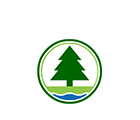
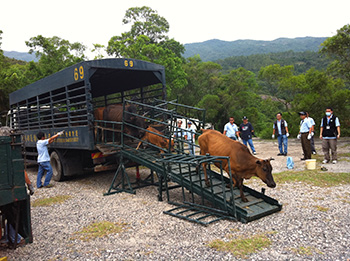
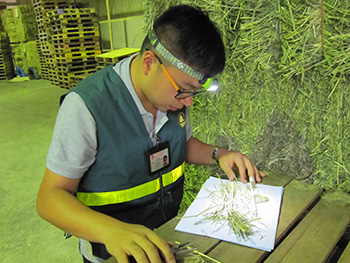 To comply with the import requirements of destination places, the Department issues Animal Health Certificates to facilitate the export of animals and birds. A total of 4,570 applications were processed by the Department during the year. ť
To comply with the import requirements of destination places, the Department issues Animal Health Certificates to facilitate the export of animals and birds. A total of 4,570 applications were processed by the Department during the year. ť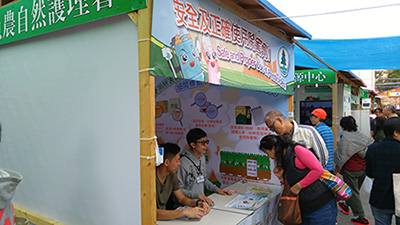 Methamidophos has been listed under the Rotterdam Convention in September 2015 and the Government has included it to Part 1 of Schedule 2 to the Pesticides Ordinance (Cap 133) in order to fulfill the Convention's requirement.
Methamidophos has been listed under the Rotterdam Convention in September 2015 and the Government has included it to Part 1 of Schedule 2 to the Pesticides Ordinance (Cap 133) in order to fulfill the Convention's requirement. 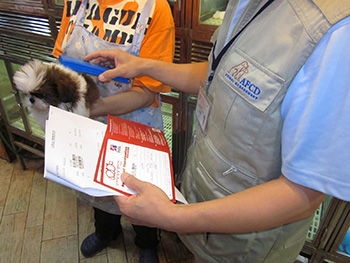 Under the law, all animal traders are required to obtain Animal Trader Licences (ATLs) and should strictly observe the corresponding licensing conditions.Å¥Pet shops are required to obtain animals for sale only from approved sources. The Department inspects these shops regularly to ensure that they do not contravene any of the licensing conditions. In 2015-16, 429 ATLs were issued, covering the trade of dogs, cats, birds, reptiles, etc.
Under the law, all animal traders are required to obtain Animal Trader Licences (ATLs) and should strictly observe the corresponding licensing conditions.Å¥Pet shops are required to obtain animals for sale only from approved sources. The Department inspects these shops regularly to ensure that they do not contravene any of the licensing conditions. In 2015-16, 429 ATLs were issued, covering the trade of dogs, cats, birds, reptiles, etc. 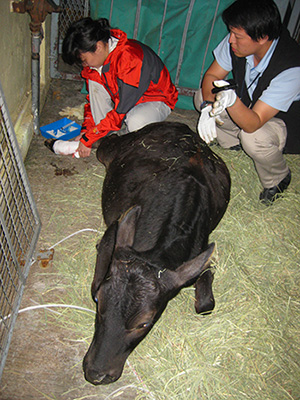
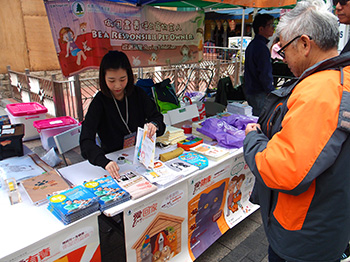 To improve the handling of animal cruelty reports or complaints, an animal welfare task force involving the Department, other government departments and the SPCA was set up. The task force meets regularly and reviews the handling of animal cruelty cases to ensure that the welfare of animals involved is well protected.Å¥
To improve the handling of animal cruelty reports or complaints, an animal welfare task force involving the Department, other government departments and the SPCA was set up. The task force meets regularly and reviews the handling of animal cruelty cases to ensure that the welfare of animals involved is well protected.Å¥ 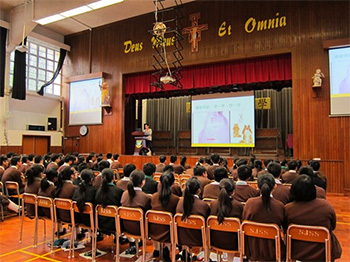 The Department continues to provide lending service of digital video players loaded with Announcements in the Public Interest and educational videos, education panels and game booths to schools, estates and organisations to promote care for animals and responsible pet ownership.
The Department continues to provide lending service of digital video players loaded with Announcements in the Public Interest and educational videos, education panels and game booths to schools, estates and organisations to promote care for animals and responsible pet ownership.